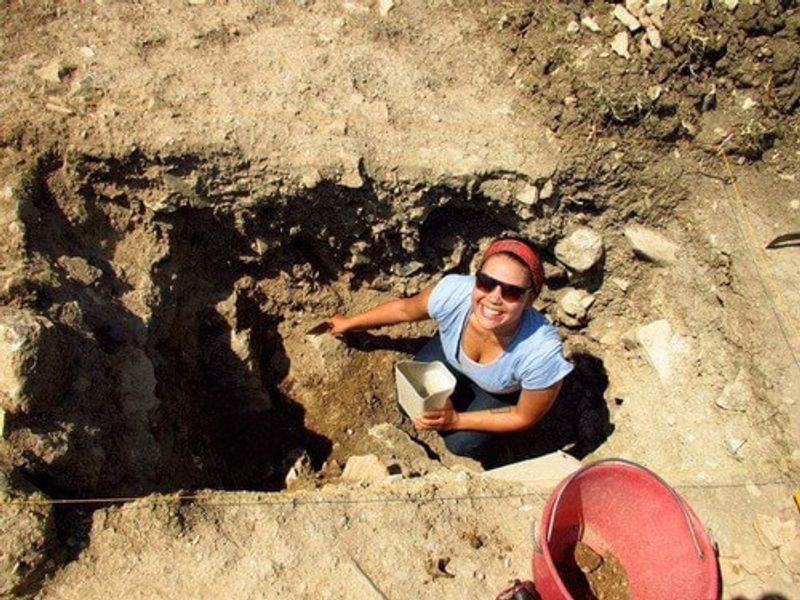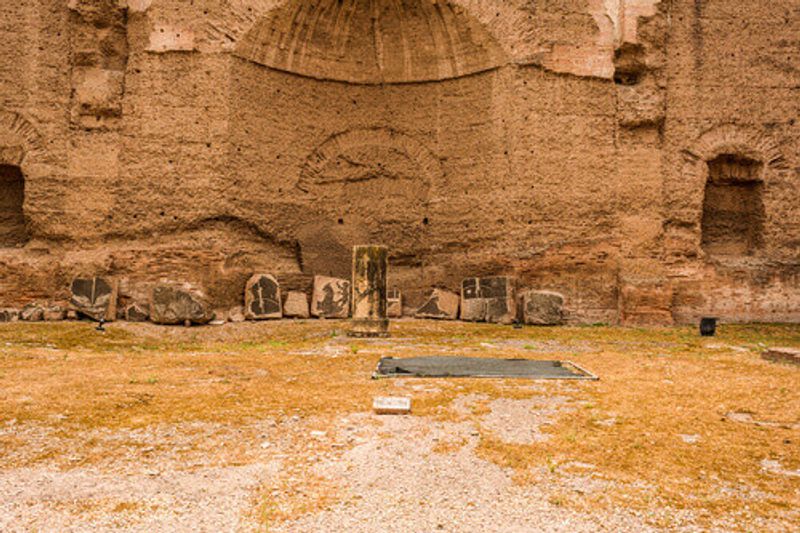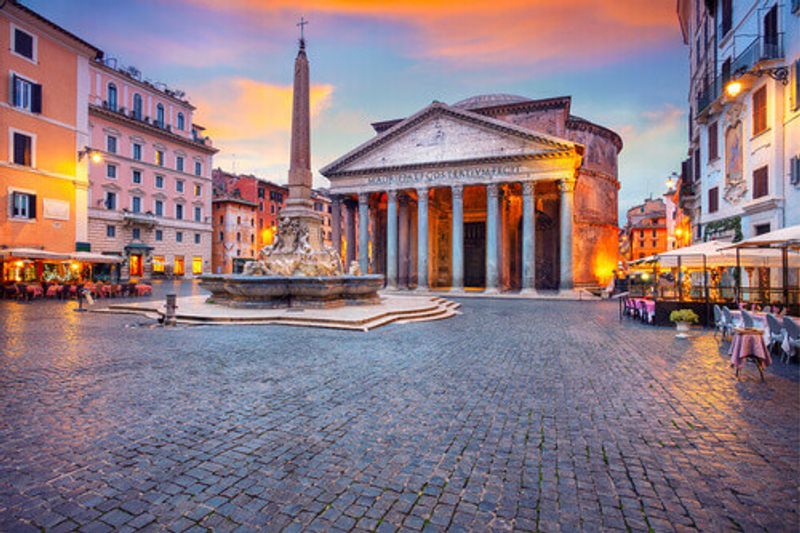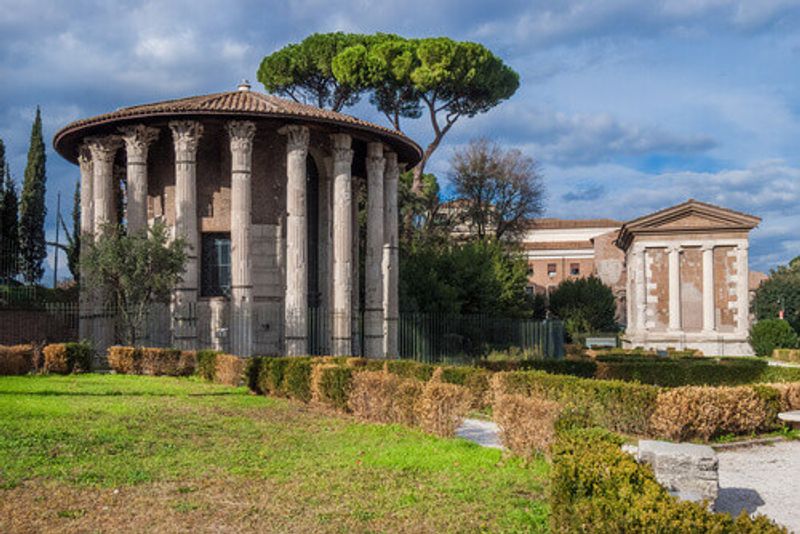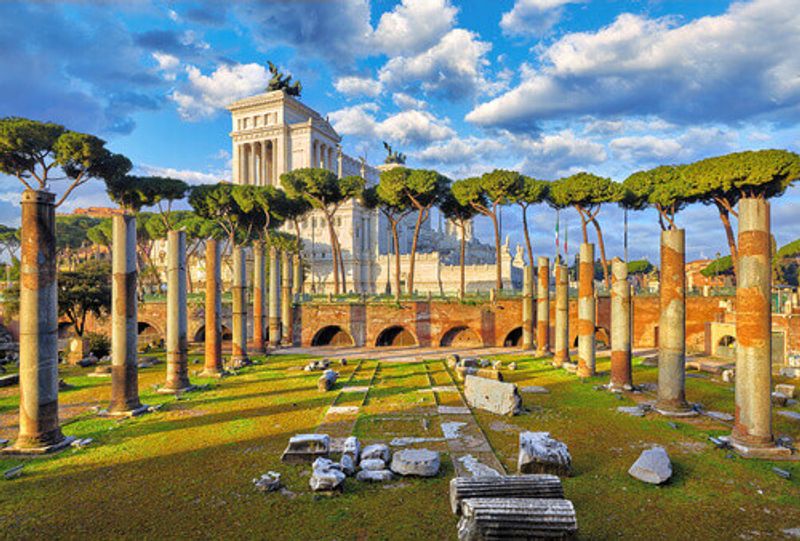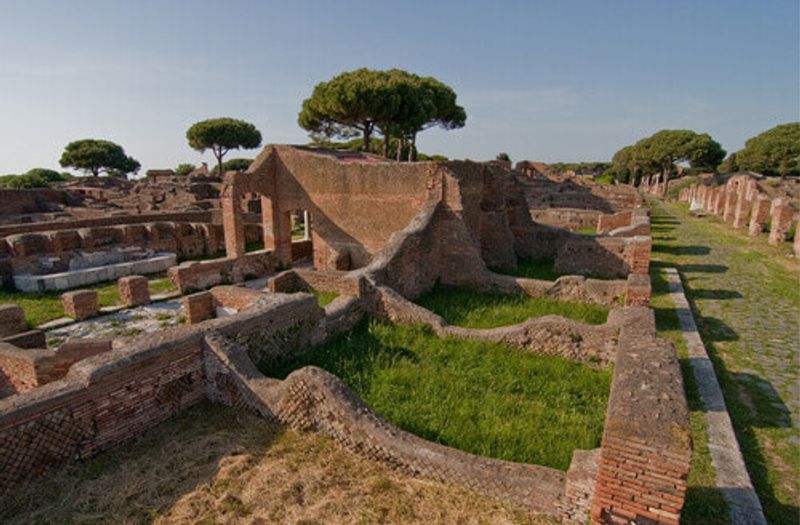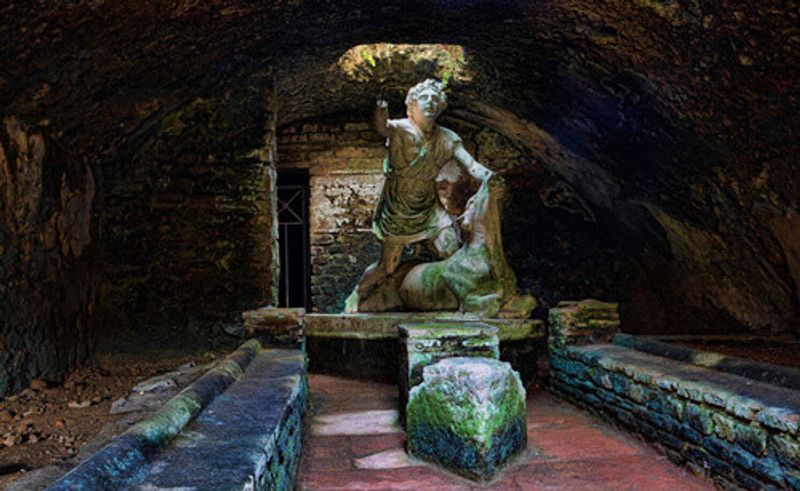Wrap your heads around the ruins of Rome and its long and glorious history
Visiting Rome can be overwhelming when you consider its historical and cultural importance – after all, it was once called 'the Capital of the World' for a reason.
The city is thousands of years old, filled with monuments, wonders, and relics from the ancient world, and new ones are being found every day – for instance, artefacts (including ancient petrified peach pits) were unearthed during a 2017 subway excavation for the San Giovanni station. Its extensive conquests of Europe and North Africa meant that Roman culture, laws, and social practices (and of course, Latin) were brought to far-off lands and made the rule of law; in turn, this also brought a wealth of exotic cultures and influences back to the Italian capital. Even the most aimless stroll around Rome is like stepping back in time.
We spoke to Gillian de Boer, who studied Classics and Achaeology with a focus on Imperial Roman History for both her Bachelors and Master’s degrees. Her resume lists archaeological digs at the Roman Forum, and the Sangro Valley in Abruzzo, to name a few.
Can you give us a little background as to why Rome is known as 'The Eternal City or 'The Capital of the World?'
The Roman Empire held the record for the largest unified territory in the West for centuries, and Rome was the seat of it. The key to Rome's success is clever PR: they exported their culture to the 'barbarians' of the provinces and inspired (some might say coerced) them into officially adopting this apparently higher culture. Provincial towns spoke Latin, practised Roman religion, enjoyed Roman pasttimes and followed Rome’s military and political structures. The rich decorated their villas with frescos showing the Italian countrysides, and towns were sent busts of the Emperor so that everyone knew who was in charge. So not only did Rome occupy the vast territory physically, but culturally too.
Emperors were also in the habit of erecting impressive public monuments across Rome that detailed the legacy they wished to leave - either for themselves or their predecessors. To us in the modern day, its legacy as an Eternal City continues mostly because its incredible monuments, art and literature have endured.
What are some of your favourite sites to visit?
My favourite site is the Baths of Caracalla because they are just so impressive and awesome. It gives you an idea of how advanced the imperial Romans were when it came to engineering, not just because of its sheer size. For example, saunas were heated by ingenious central heating systems called hypocausts that were fed by special aqueducts. There were libraries, shops, shrines, sporting areas and facilities for other leisure activities there, too. It really is an inspiring site.
The Pantheon is just amazing. I particularly enjoy it at night, when it’s lit up and quiet - it's so mysterious and atmospheric. Today it remains the world's largest unreinforced concrete dome, almost 2,000 years after it was rebuilt; it's just incredible to think about who’s been here.
I also suggest going for a wander around the Forum Boarium, the ancient meat market. Up a side street is the 4th century Arch of Janus that many people miss. You might see archaeologists working at the St. Omobono site, and further along and above you can see the Tarpeian Rock, where criminals were executed during the Republican period by being thrown off it. From there, walk past the Theatre of Marcellus to the Portico of Octavia and into the Renaissance-period Jewish Ghetto. There are lots of relics to spot on the walls around there.
Are there still active archaeological digs in Rome?
All the time! La Sapienza University are still doing work in the Roman Forum where they are investigating down to virgin soil (soil untouched by civilisation). You can probably see archaeologists from all over the world working in large tourist sites and other parts of the city, if not looking for something new then maintaining or restoring a site. Especially in the summer, when students and universities are in dig season. The Sopraintendenza [full name Soprintendenza Speciale Archeologia Belle Arti e Paesaggio di Roma] are the overseeing body for archaeological digs that happen in the city.
What are some items one might expect to find at a modern archaeological dig in Rome?
Literally anything! When I was on site in the Roman Forum in 2010, colleagues found a number of votive vases containing skeletal remains of a human foetus – likely stillbirths that were offered to the gods. In the Sangro Valley in 2013 we found Imperial period coins, flagstones, roof tiles, hundreds of pottery shards, and I even dug up an ancient horse skeleton that was burnt in a rubbish dump. There’s so much that we still don’t know about the ancient world that you can only imagine what the earth is hiding from us.
If you had one free day, do you have any off-the-beaten-path recommendations for historic sightseeing?
Ostia Antica - it's absolutely my favourite site in Rome. It’s really an inspiring place to spend the day. It's the ancient port town of Rome and was incredibly important to the successful operation of the capital at that time. That's where all trade passed through, since it sits at the mouth of the Tiber River. The site itself is like a rough and tumble Pompeii; no one seems to know about it so you basically have free range of the place. It's the perfect example of middle class Imperial Roman life, from smart urban planning to daily life on-the-go (a thermopolis was a fast food joint, like McDonalds today).
Make sure you check out the various Mithraea there, which are subterranean temples dedicated to the Persian god, Mithras. The Cult of Mithras is an ancient Zoroastrian religion that operated underground, literally and figuratively. The places of worship are underground and have an eerie air to them. There are also some of the finest surviving examples of mosaic work from the Imperial period. Bring a massive water bottle and some lunch. There are facilities there but it’s quite a trek if you’re on the wrong side of the site. I also hear that Hadrian's Villa is great, but I haven't been.
